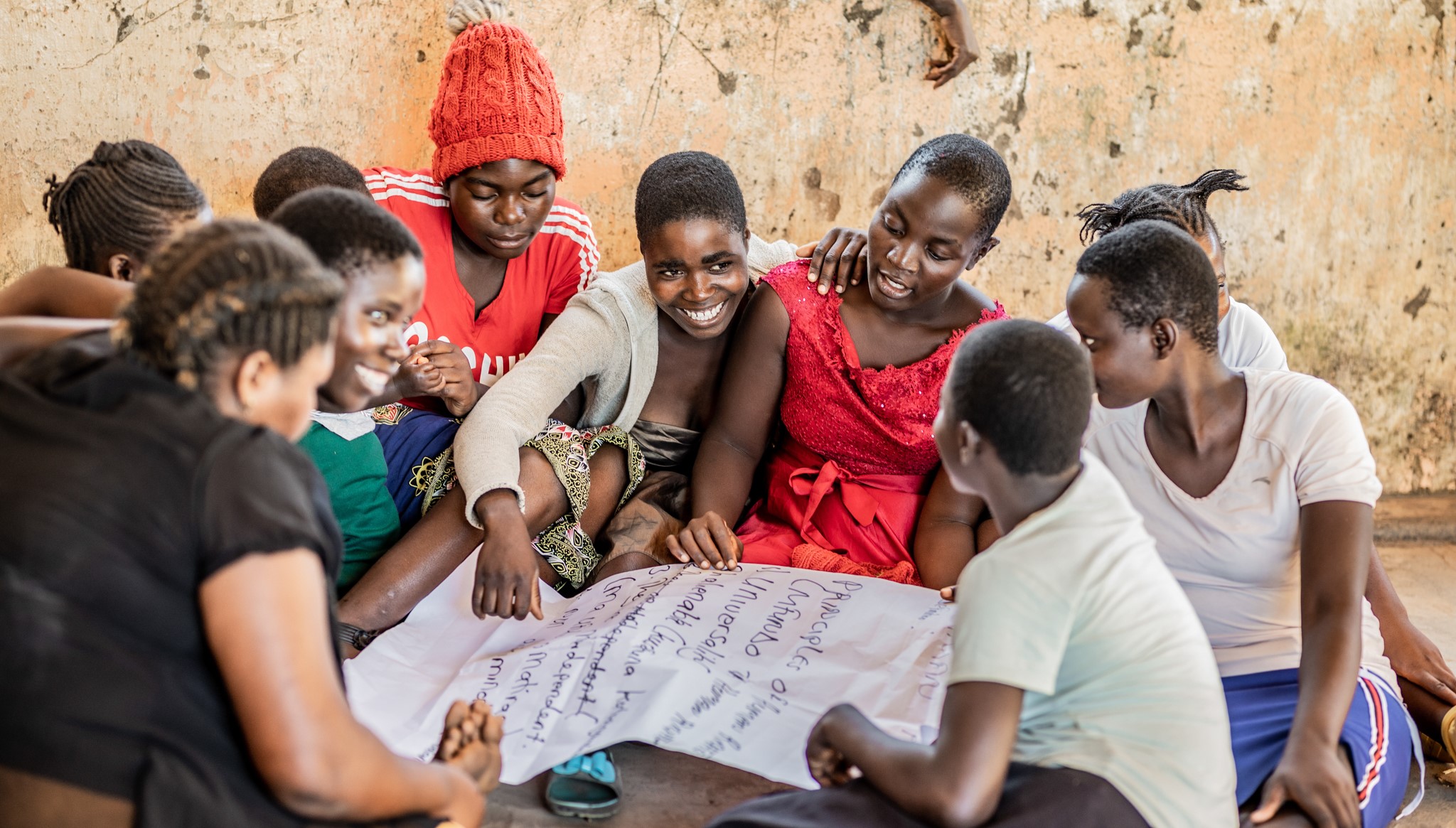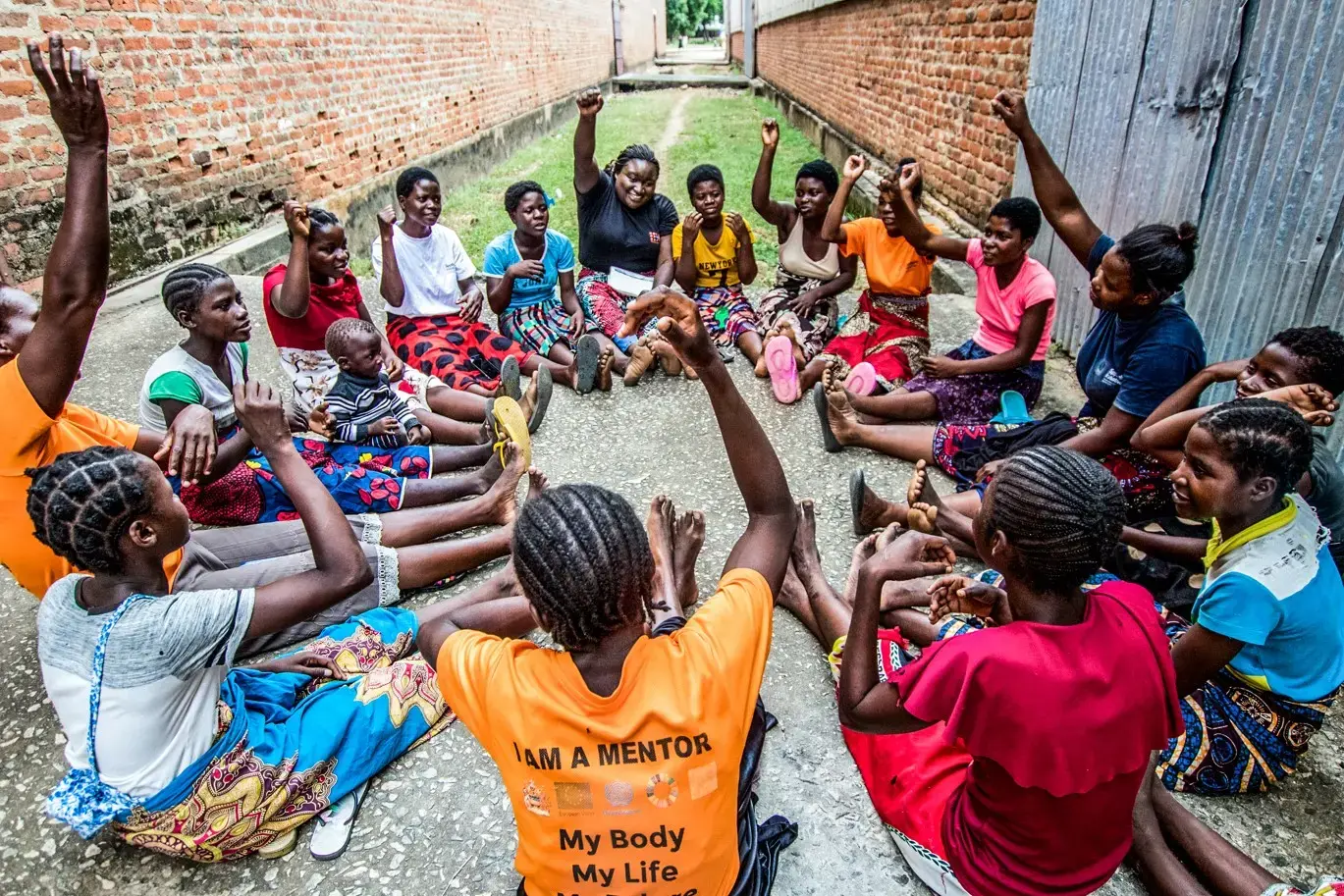The objective of the Gender Based Violence programme in Malawi is to expedite the reduction of gender-based violence and harmful practices. The overarching goal is to empower adolescent girls and women, enabling them to make informed choices and decisions regarding their bodies, lives, and future. This initiative addresses persistent gender inequalities at all levelsin, aiming to overcome challenges in accessing education, training, legal rights, health services, economic resources, and decision-making. The historical influence of patriarchal values has been a significant factor contributing to these inequalities.
UNFPA's primary goal of the programme is to create a critical mass of well-informed adolescent girls and young women. These individuals are supported by community structures to challenge harmful social norms, report violations, and seek comprehensive and quality essential services. Empowerment initiatives play a key role in achieving these objectives, fostering a sustainable impact on mindset change and access to GBV services.
UNFPA Coordination and Leadership:
UNFPA plays a crucial role in coordinating and leading efforts to combat GBV in Malawi. UNFPA serves as the Co-chair of the GBV sub-cluster, the United Nations Gender and Human Rights Technical Working Group, and various national gender-related groups. Through capacity-building initiatives, UNFPA enhances multisectoral capabilities to prevent and address gender-based violence. Focus areas include the Essential Services Package, advocacy, data management, health systems, psychosocial support, and coordination.
Key Initiatives Supported by UNFPA:
UNFPA actively supports survivors in hard-to-reach areas, offering training on Essential Services Package scorecards to hold service providers accountable. At the community level, UNFPA collaborates with local structures, girls' networks, and leaders to eliminate harmful practices. In humanitarian settings, UNFPA champions multi-sectoral life-saving services, addressing gender-based violence prevention and response during emergencies. The organization ensures the safety and dignity of community members, particularly adolescent girls and young women, through awareness, referrals, protection, and psychosocial support.
Access to GBV Services:
UNFPA, in its leadership role, focuses on ensuring that GBV survivors access quality and essential services. Community and survivor funds have been established to support the mobility and upkeep of adolescent girls and young women accessing service points. This financial support extends to witnesses in GBV and sexual gender-based violence cases, addressing barriers like transportation costs. This initiative aims to empower survivors to leave abusive environments and pursue justice.
Policy Advocacy and Dialogue:
UNFPA collaborates with government, development partners, and implementing partners to strengthen policy, legal, and accountability frameworks. This involves disseminating laws to local communities, working with parliamentary caucuses to review laws, and supporting the development of gender-related strategies and policies.
Safe Spaces for Girls:
UNFPA supports mentorship sessions and protective networks for out-of-school adolescent girls and young women. These safe spaces focus on sexual gender-based violence, reproductive health and rights, harmful practices, gender perspectives, and life skills. This transformative approach empowers girls over six months of interactive sessions, creating a supportive system within communities to challenge and seek essential services for those violated.

Digitalizing Safe Spaces:
UNFPA is scaling up the provision of digital technology to adolescent girls and young women to enhance their knowledge and digital skills. Digitalization is integrated into safe spaces, acting as a network and information platform for empowerment. This initiative accelerates the use of technology within communities, enabling girls to stay updated and connected.


